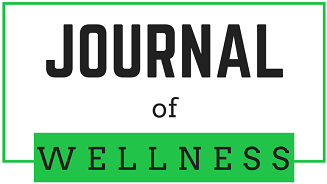
Abstract
Introduction: The beneficial impact of performing arts involvement within undergraduate medical education, such as music, has been studied, but support for the arts varies significantly by institution. Research has suggested that medical student involvement in the arts can help develop their identities as physicians and may reduce stress and burnout, an increasingly difficult problem within the medical student community.
Methods: We used a mixed-method cross-sectional study design, using a questionnaire and semi-structured interview designed amongst a team of music professionals and healthcare providers with music backgrounds. Out of 511 enrolled medical students, 93 students participated in the study for a response rate of 18.2%. Questions were piloted among eight medical students, with modifications made in response to feedback. Participants were recruited to participate in an online survey via social media.
Results: Within our sample, the most popular background instrument was piano (58.5%) and voice (50.0%). Of those who responded, most preferred to perform alone (85.7%) or in small groups (51.4%). 78.8% of respondents agreed that music was essential to their wellbeing. Only 62.5% of the respondents with musical backgrounds still play music or sing. Of those who no longer play music, 90.5% of respondents reported time constraint as the limiting factor, followed by lack of access to instruments (42.9%).
Conclusion: This study suggests there are diverse music backgrounds and interests amongst the medical student population. Although most participants believed music was a form of stress relief, undergraduate medical training demands impose time restrictions on student engagement. Investments in music programs that enable adequate involvement and meet student demand have the potential to improve medical student engagement with the arts, alleviate stress, and may even lead to stronger/more empathetic physicians. Periodic needs assessments may be a powerful tool to better align programming to address student desires and reduce barriers.
DOI
10.18297/jwellness/vol3/iss2/5
Recommended Citation
Tu, Alexander; Truong, Tiffany; Carlson, Kristy J.; Brooks, Matthew J.; and Dowdall, Jayme R.
(2021)
"Reducing “Treble” with Performance Focused Music Programs in Medical School: A Student Driven Needs Assessment to Clarify Participation Barriers Amongst Undergraduate Medical Students,"
Journal of Wellness: Vol. 3
:
Iss.
2
, Article 5.
DOI: https://doi.org/10.18297/jwellness/vol3/iss2/5
Available at:
https://ir.library.louisville.edu/jwellness/vol3/iss2/5
Survey instrument
Interview Questions.docx (14 kB)
Interview questions
Included in
Educational Assessment, Evaluation, and Research Commons, Health and Physical Education Commons, Medical Education Commons, Medical Humanities Commons, Music Commons, Psychiatric and Mental Health Commons
